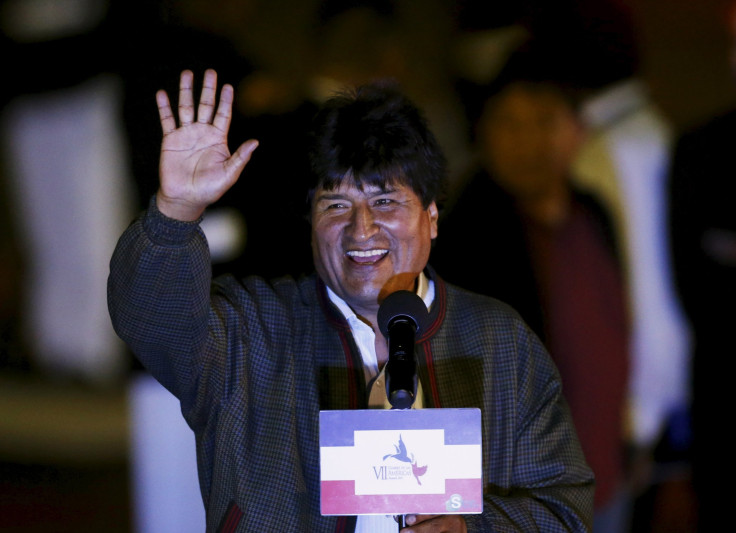Bolivia's Evo Morales Calls Obama 'Patronizing' And 'Imperial' During Americas Summit In Panama

Bolivia's President Evo Morales blasted U.S. President Barack Obama on Friday, calling him "patronizing" and "imperial" as leaders from across the Americas gathered in Panama to broker trade deals and discuss foreign policy. Morales said in an exclusive interview that aired on teleSUR Friday morning that the Obama administration's tense relations with Venezuela, an ally to Bolivia, underscored Latin America's need to turn its back on the U.S.
“It would be good if Obama, who represents such an important country in America and the world, were to make proposals that would allow us to unite and to convert ourselves into an America of peace, with social justice, and solidarity … because we cannot advance with a mentality that is patronizing, colonial, imperial, and with the policies of neoliberalism,” said Morales, who arrived in Panama on Thursday night for the seventh Summit of the Americas.
Morales noted that Venezuela was not a threat to the U.S. and had won support from other Latin American leaders and China. The U.S. "divides us into good countries and bad countries. … Those who submit to the empire … are the good countries,” he said.
Venezuelan President Nicolas Maduro has accused the U.S. of supporting coup attempts to unseat his leftist government. He was expected to lobby Latin American leaders for support against the U.S. during the Summit of the Americas. Many of his counterparts are already wary of U.S. policy in the Western Hemisphere.
Obama's comment this week that the United States did not see Venezuela as a threat drew praise from Maduro. "The statements by President Barack Hussein Obama ... could temporarily open a door to begin a new era of historic relations between Venezuela, a free and sovereign Latin America, and the empire of the United States," Maduro said at a rally.
Obama, meanwhile, has his own agenda during the Americas summit. He spoke with Cuban President Raul Castro on the telephone ahead of the summit in the latest sign of easing relations between the U.S. and Cuba. This was the first time Cuba had been invited to the gathering since its launch in 1994. Latin American leaders have criticized the U.S.' sanctions against Cuba for decades.
© Copyright IBTimes 2024. All rights reserved.






















